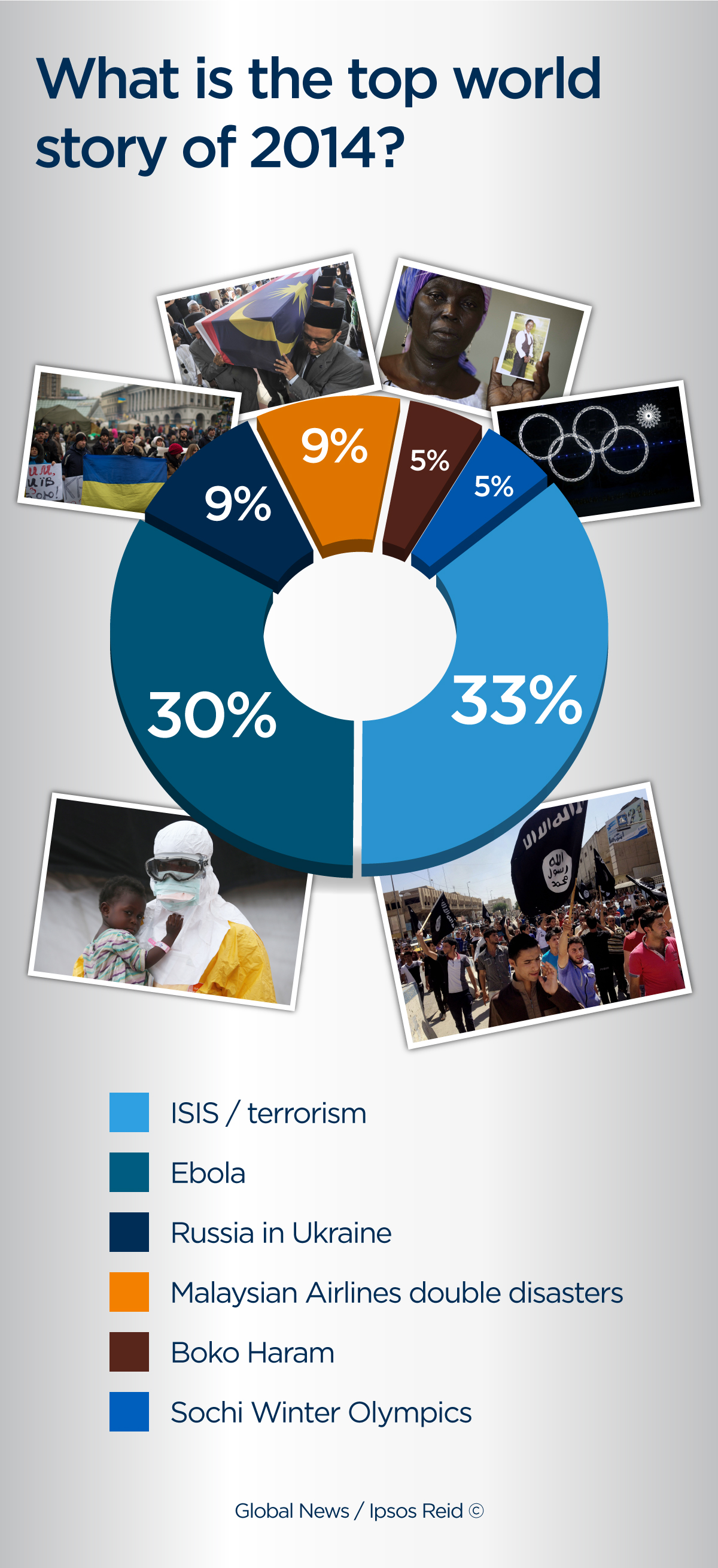ISIS became a household term for Canadians in 2014, as the militant group made swift and violent advances in Iraq and Syria, and committed horrendous atrocities against civilians and captives. Now, it appears nearly three-quarters of Canadians support the use of Canadian Forces ground troops, in Iraq, to prevent the terror group from establishing its own state.

In an exclusive Global News/Ipsos Reid poll, 73 per cent of respondents said they strongly (31 per cent) or somewhat (41 per cent) agree that “everything possible” needs to be done to stop ISIS from establishing its self-declared caliphate — the Islamic State, as the group now refers to itself as — and that includes putting Canadian boots on the ground.
Canadians over the age of 55 and Atlantic Canadians — both at 80 per cent — showed the most support for doing whatever it takes to stop ISIS, including sending ground troops.
According to Ipsos Reid, it was surprising that 73 per cent of Quebecers showed support for the use of force.
“Historically, support for combat missions including Canadian soldiers is much lower among Quebecers,” Ipsos Reid’s Darrell Bricker explained. “In this case, Quebec is in the middle of the pack. ”
But more than one-quarter of Canadians disagree. The poll, conducted between Dec. 16-19, showed 7 per cent strongly disagreed and 20 per cent somewhat disagreed with the idea of sending troops to Iraq.
Right now, Canada is involved in the U.S.-led aerial combat mission targeting ISIS in Iraq, while a small contingent of Canadian Forces members were sent to the country in October to provide support and training to Iraqi Kurdish fighters. The government has not committed to sending combat troops on the ground in Iraq. The approximately 600 Canadian Forces members who are supporting the air combat mission are based in Kuwait, along with six CF-18 fighters jets, two CP-140 Aurora surveillance planes and a Polaris C-150 refueling jet.
Defence Minister Rob Nicholson told Global News, on Dec. 12, the government is considering extending the mission beyond its six-month commitment.

Get breaking National news
Canadian jets are not involved in coalition airstrikes in Syria and the Harper government has no plans to join those missions, Foreign Affairs Minister John Baird said on Dec. 6.
READ MORE: Conservatives’ Syria refugee response labelled as ‘discrimination’
About 36 per cent of the respondents said ISIS is “the biggest global threat to peace and security,” while 24 per cent believed a bigger threat is the homegrown radicals who have come to be associated the Islamist extremist group that has lured thousands of foreign fighters to fight in Syria and Iraq.
ISIS is a disavowed offshoot of al-Qaeda, which some Canadians (18 per cent) still see as a major threat to global peace and security.
Rounding out the list of perceived threats, 7 per cent of Canadians said Russia poses more of a threat, 5 per cent agreed it was nuclear-armed and temperamental North Korea, 2 per cent said Iran and 1 per cent said Syria.
While Canada’s involvement in airstrikes, including reconnaissance and refueling operations, has been limited — U.S. fighter jets have launched more strikes than all the coalition members combined — the campaign has had successes in helping push ISIS back from some fronts and allowing Kurdish Peshmerga fighters to take control of some areas.
Peshmerga forces on Dec. 17 gained control of Iraq’s Mount Sinjar, where hundreds of Yazidi Christians had been under ISIS siege since August. At that time thousands of Yazidis were essentially held hostage on the mountain under a threat of execution. Concern they could be massacred — many had already been killed or taken captive — led U.S. President Barack Obama to order the first airstrikes against ISIS.
Most Canadians, 71 per cent, strongly or somewhat believe the international coalition can win the war against ISIS, while 22 per cent aren’t so sure and 7 per cent don’t think it’s at all possible.









Comments
Want to discuss? Please read our Commenting Policy first.